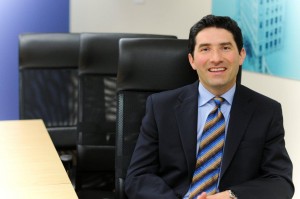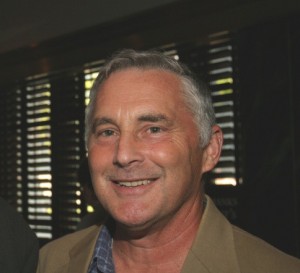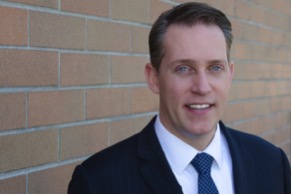♫ And if you don’t love me now
You will never love me again
I can still hear you saying
You would never break the chain…♫
Lyrics and music by: Stevie Nicks, Lindsey Buckingham, Christine McVie, John McVie, and Mick Fleetwood, records by Fleetwood Mac.
In this third and final instalment of the 2016 prognostications, we have predictions from:
- Sharon Nelson and John Simek
- Sheila Blackford
- André Coetzee
- Ben Stevens
- Brian Mauch
- Nikki Black
- Stephen Gallagher
- Tom Spraggs Jr
- Deb McMurray
- Mitch Kowalski
- Dave Bilinsky
Sharon Nelson and John Simek:
Predictions for Dave Bilinsky
- Encryption of confidential e-mail will surge – it’s no longer “too hard” or “too expensive” – and it may be ethically required (see 2015’s groundbreaking ethical opinion from Texas). We were busy all year installing ZixCorp (which seems to be favored by many law firms) and expect to be even busier doing it 2016.
- Because security is now paramount on the minds of so many lawyers, we have already seen a great deal of interest in Open Whisper Systems’ Signal encryption for use with voice and text communications via smartphone. Edward Snowden and cybersecurity guru Bruce Schneier are both fans – and we’re starting to see lawyers taking a serious look at this – it began hitting the listserves in 2015 and will likely grow in popularity. The caveat is that both parties to the communication must be using it.
- As we write, it has been announced that LegalZoom is buying a UK law firm. Look for some serious alternative business structure lobbying by LegalZoom, Avvo and others in the coming year.
- More and more large firms are acquiring the ISO 27001 certification – 27 of the AmLaw 100 firms have it now. This is not for the solo/small market but you will probably see a lot of those firms self-certify that they are compliant with the NIST small business data security standards.
- The Rise of the Machines seems more and more inevitable as Ross, the Superintelligent Lawyer (and ‘son’ of IBM’s Watson) has gotten ‘a job’ at Dentons and is being deployed by other large firms on a trial basis as well. A lot of paralegals and first/second year associates are likely going to be replaced by Ross and his progeny – if not in 2016, then soon thereafter.
- We have been surprised by how many lawyers adopted and fell in love with Microsoft’s Surface Pro 3 (us too). We are now seeing, for the first time, enterprise deployment of the Microsoft Surface Pro 4 – we expect that trend to continue. Folks are outfitting their firms with the a Surface Pro 4, a docking station, a full size keyboard, and two flat panel monitors. Grab it and go and you have a fully functional laptop in a tablet form. We don’t see the Surface Book achieving the same success – once you remove the keyboard and effectively have a tablet, the battery life plummets to about 3 hours. That’s a non-starter. Note that we have taken the Surface Pro 3 on cruises, European vacations, etc. and been fully functional. We see a bright future for the Surface Pro 4.
- Windows 10? Many waited (prudently) to install it, but almost everyone will have it by the July 29, 2016 deadline to install it for free. Look for all the compatibility and bug issues to be resolved by early 2016. This will become the workhorse that Windows 7 was in its time.
About John and Sharon:
Sharon D. Nelson, Esq.
Sharon D. Nelson, Esq., is the President of Sensei Enterprises, Inc., a digital forensics, information security and information technology firm in Fairfax, Virginia.
Ms. Nelson is the author of the noted electronic evidence blog, Ride the Lightning and is a co-host of the Legal Talk Network podcast series called “The Digital Edge: Lawyers and Technology” as well as “Digital Detectives.”
She is a frequent author (fourteen books published by the ABA and hundreds of articles) and speaker on legal technology, information security and electronic evidence topics. She was the President of the Virginia State Bar June 2013 – June 2014 and a past President of the Fairfax Law Foundation.
She may be reached at snelson@senseient.com
John W. Simek
Mr. Simek is the Vice President of Sensei Enterprises, Inc., an information technology, digital forensics and information security firm located in Fairfax, VA. Mr. Simek has a national reputation as a digital forensics technologist and has testified as an expert witness throughout the United States. He holds a degree in engineering from the United States Merchant Marine Academy and an MBA in finance from Saint Joseph’s University.
Mr. Simek holds the prestigious Certified Information Systems Security Professional (CISSP) and EnCase Certified Examiner (EnCE) certifications in addition to multiple other technical certifications. He currently provides information technology support to hundres of Washington, DC area law firms, legal entities and corporations. He is a co-host of the Legal Talk Network podcast Digital Detectives. He is a frequent author (twelve books published by the ABA and hundreds of articles) and speaker on legal technology, information security and electronic evidence topics.
He may be reached at jsimek@senseient.com.
Sheila Blackford:
Outsourcing in 2016 will continue, with more firms reaching out to non-traditional sources of legal assistance.
Don’t be afraid of hiring talent with different skill sets if they are compatible with your needs, especially if accompanied by attractive personality attributes.
![Digby[1]](http://thoughtfullaw.com/wp-content/uploads/2015/12/Digby1-225x300.jpg)
Digby consistently displays a remarkable accuracy rate in catching manuscript errors while maintaining an upbeat cheerful nature that fosters a pleasant work environment. I don’t think writing Trust Accounting in One Hour for Lawyers would have been as easy an undertaking without his support. Here he is checking things before sending the manuscript to ABA Law Practice Division Publications Board.
About Sheila:
Sheila Blackford is an attorney and has been a practice management advisor for the Oregon State Bar Professional Liability Fund since 2005, providing confidential practice management assistance to Oregon attorneys to reduce their risk of malpractice claims and ethics complaints. She is the former Editor-in-Chief of Law Practice, published by the ABA Law Practice Division and is co-author of Paperless in One Hour For Lawyers and a contributing author to the Flying Solo, 5th Edition both published by the ABA Law Practice Management Division. Her book Trust Accounting in One Hour for Lawyers is scheduled for publishing in 2016. She is a contributing author to the Fee Agreement Compendium published by the Oregon State Bar. Follow her blog Just Oregon Lawyers.
André Coetzee:
Here some predictions for 2016:
- The demand on bandwidth is going to continue to grow exponentially due to the even higher demand for performing work online. As result there are going to be more providers providing fibre internet connections at a reasonable cost.
- Wireless cellular providers are going to continue to invest in ways in making their networks faster too as well as increasing their reach into more rural areas. This is going to allow us to do even more on our Smart Devices.
- Adopting a client experience approach as opposed to a client satisfaction approach. The client experience is a holistic approach and ensures that all the functional areas within your firm consistently give the same experience to the client i.e. if your client is dealing with the receptionist or the managing partner, an associate or a paralegal the client experience will be the same. The client experience approach also deals with how\who you hire, how you treat your vendors etc. Adopting a client experience model is not easy to achieve, however can reap high rewards e.g. increase in new business\clients, client retention, happier staff, loyal vendors etc.
- Digital dashboards which allow Partners to view predetermined Key Performance Indicators to see how their firm is performing real time. The data will be pulled from multiple different data sources e.g. a legal application\s, a productivity application\s etc.
- The amount of data is increasing exponentially and hence tools\software that gives us quick and easy access to the large volumes of data we have whether it be on your server, in the cloud, computer at home etc. Also being able to add more storage on demand.
- More digital automation than we currently see today to improve, enhance, create new processes and maybe even create completely different business models i.e. using a combination of these technologies, mobile, cloud, data analytics, artificial intelligence etc. to provide better more customized services to clients quicker
- Being more nimble with regards to services and products provided to clients.
- Digital assistants performing mundane data entry e.g. names, addresses etc.
- Virtual reality is going to improve and holographic movies are on their way – saw a demo video of holographic technology where there were Rhinos and cheetahs walking around a shopping mall India –it was incredible.
- Simpler and more user friendly digital signature technology, improving processes and efficiency.
About André:
André Coetzee, MBA, PMP, BA, H.Dip.Ed.
(Masters in Business Administration, Project Management Professional, Bachelor of Arts, Higher Diploma in Education)
Andre Coetzee is a Director and a founding partner of i-worx, a Premium Hosting Service Provider for law firms. Andre is constantly researching and exploring new and better Hosted IT services with the goal of continuously providing legal firms a premier IT experience. As a result i-worx has developed a reputation for delivering innovative Hosted IT services to law firms, including Hosted Desktops, Hosted Email and secure file sharing with exceptional personalized service. For more information or to learn more about how hosted services could benefit your Firm, call 604.639.6300 or email andre@i-worx.ca.
Ben Stevens:
I believe that more attorneys will begin using the Apple Watch and integrating it in their practices and their lives. For instance, trial attorneys may realize that they can subtly receive messages from their associate regarding key points while questioning a witness. Further, the health integration is also an easily overlooked feature that could encourage attorneys to spend a little more time standing or moving around their office instead of sitting behind a desk all day.
About Ben:
Ben Stevens is a South Carolina family law attorney, who is a Fellow in both the AAML and the IAML. He has published The Mac Lawyer legal technology blog since 2006, and he co-founded the Macs in Law Offices (MILO) forum in 2007, which has almost 5,000 members today.
Brian Mauch:
My predictions for 2016 are:
- Small firms will adopt document management systems like Worldox in record numbers. The volume of documents and emails that firms need to manage is increasing exponentially each year.
- Android-based smartphones will overtake iPhones as the most popular choice for lawyers replacing their smartphones next year. iPhones had overtaken Blackberries a few years ago, and now its Android’s turn.
- Dual monitors for lawyers and staff have become the standard setup for many firms. The percentage of firms that have adopted multiple monitors will soon exceed more than 50%.
About Brian:
Brian Mauch is CEO of BMC Networks, a Vancouver-based outsourced IT provider that specializes in law firms. Brian obtained both law and commerce degrees from the University of British Columbia, and then combined his education with his passion for computers to form BMC Networks in 1997.
Nikki Black:
In 2016, smartwatch use by lawyers will start to take off.The biggest benefit of this type of technology is that it will help lawyers untether from their smartphones and filter out all but the most important, need-to-know information.
Cloud computing use by lawyers will also increase now that the technology and the legal cloud computing providers are becomingly increasingly familiar. Lawyers will use it for all sorts of law office functions, including billing, time tracking,and document storage. Othes will move all of those functions to the cloud by using a full-fledged web-based law practice management software system.
By incorporating cloud computing software and other types of emerging technologies, such as smartwatches, into their practices, lawyers will be able to streamline their practices and provide better representation to their clients.
Stephen Gallagher:
What a group of authorities you have brought together once again. I do not know how I can contribute other than saying that I still think every young lawyer should read Clayton Christensen’s book, “How Will You Measure your Life?”.
In this groundbreaking and remarkably personal book, Clayton Christensen and his coauthors James Allworth and Karen Dillon put forth a series of fundamental questions everyone asks themselves at some point in their lives:
- How can I be sure that I’ll find satisfaction in my career?
- How can I be sure that my personal relationships become enduring sources of happiness?
- How can I avoid compromising my integrity—and stay out of jail?
Using lessons from some of the world’s greatest businesses, applying his theories about disruptive innovation, and drawing personal examples from his own life, Christensen and his coauthors seek to answer these questions by presenting a way for each of us to think about our lives and find the satisfaction, happiness, and direction necessary for a successful and happy future.
I’ve admired Clayton Christensen for some time now. He is among other things a devout Mormon. He writes that he is very grateful for several early decisions he made in his career. In a speech to Brigham Young University–Idaho Devotional he said that one of his decisions was made at Oxford. He told his audience that he is 6’8″, so he tried out for and made the Oxford Varsity basketball team. They turned out to have a great team. He said that those guys were the best friends that he ever known in his life, and they went through the regular season and were undefeated.
Then they went into the British equivalent of what we would call the NCAA basketball tournament. They marched through each of those games in a fairly easy fashion until they came to the final four. When he looked at the schedule he realized that the final basketball game was scheduled to be played on Sunday in Bristol. He was devastated because he had made a commitment to himself when he was 16 that he would never play basketball on Sunday.
He went to the coach truly conflicted. The team had worked their guts out all season long and Clay was the starting center, and he wanted to help them win this goal that they had all practiced for. And yet he had made this commitment to Heavenly Father and to himself. So he told his coach about this conflict and asked him what he should do. The coach was just incredulous. He said, “We have worked so hard for this. I can’t believe you’re even asking.” He said, “I don’t know who your god is, but mine, let me tell you what he’s like. He lets us by on things like this. And Clay, just this once, just this once, play this game and then go off and do whatever you have to do with your god and make peace with him and never do it again.”
Well, then the team played in the semi-final game without Clayton, and they won. Clayton said that proved that he wasn’t that important to the team. As time has passed, Clayton felt that this decision looms as one of the most important decisions he had ever made because it would have been very easy to say, in general, keeping the Sabbath day holy, but in his particular extenuating circumstances, it’s okay, just this once. And the reason that decision has proven so important to Clay is that his whole life has turned out to be an un-ending stream of extenuating circumstances, and had he crossed that line just that once, then the next time something came up that was so demanding and critical, it would have been so much easier to cross the line again.
I share this with young lawyers who are starting their careers, They will be constantly bombarded with “extenuating circumstances”. The future holds many challenges and the winners in this fight will be ball players who refuse to compromise themselves.
About Stephen:
Stephen P. Gallagher, is a principal at LeadershipCoach.us, an executive coaching consultancy that works with senior lawyers, practice group leaders, and other “high potential” individuals. Stephen is an Organizational Development professional that provides lawyers and law firms with a broad range of coaching services directed at facilitating positive change.
Stephen holds a Master of Science degree in Organizational Dynamics (MSOD) from the University of Pennsylvania. He has more than 30 years of experience in working exclusively with lawyers.
Stephen is also certified as a Retirement Options coach, and as such, he helps individuals focus on the critical aspects of non-financial retirement planning.
Based in Philadelphia, PA, Stephen’s practice is committed to partnering with clients in a creative process that inspires them to maximize their personal and professional potential and at the same time enhancing professional and personal satisfaction in achieving a more balanced life.
Stephen has conducted strategic planning programs with the American Bar Association, state and local bar associations, as well as The Law Society of England and Wales, and The Law Society of Scotland. In addition to coaching lawyers, Stephen is an adjunct faculty member in the Marketing department at St. Joseph’s University in Philadelphia.
Stephen has written extensively in areas as diverse as The High Performance Lawyer, Yesterday’s Strategies Rarely Answer Tomorrow’s Problems, and Winding Down the Law Practice, Planning for Retirement He has designed and facilitated numerous bar association and law firm retreats dealing with the changing nature of law practice. The National Association of Bar Executives (NABE) published Stephen’s two part articles, LPM Programs: an Inside Look and Bar Associations in Transition II. In December 2014, Bar Leaders, a publication of ABA Division for Bar Services published another of his articles, The rise of the laptop lawyer? Senior members, lonely bowlers, and a way forward.
Stephen P. Gallagher: sgallagher@leadershipcoach.us
Thomas Spraggs Jr.:
The market will continue to compel the legal community to search for technology solutions that facilitate the effective delivery of legal services while simultaneously attaining a high level of efficiency.
One of the ways to do this is with Customer Relationship Management software, otherwise known as “CRM”. CRM software represents a useful tool for managing a company’s interactions with customers. CRM attempts to analyze data about the customer’s history and allows a company to cater to their needs. It is scalable and, most importantly, made more accessible through cloud based technologies. For example, www.salesforce.com now offers a cloud solution so that a client’s interactions with a company can be tracked from beginning to end and in perpetuity. CRM can also simply take the form of a contact manager system that integrates emails, documents, jobs, faxes, and scheduling for individual accounts.
Wouldn’t it be amazing to know where your referrals were coming from and having the ability to view a customer’s data and company interactions on an electronic dashboard?
I predict that 2016 will be one of the most innovative years for lawyers in general who apply technology and this may be the year that CRM software gains popularity to foster business relationships and retain satisfied clients.
About Thomas:
Thomas has applied innovative approaches to practice management and a progressive approach to technology in leading Spraggs & Co to become a highly respected, award-winning law firm. Thomas has earned an LLB, an LLM, and an MBA, and he is a co-founder of Lawly (www.lawly.com) a technology start-up supporting access to justice. He is a member of the law societies of British Columbia, Yukon and Alberta and a volunteer with the British Columbia Law Institute in his capacity as Director and Treasurer. He also serves as co-chair to the newly-formed Canadian Bar Association Tri-Cities/New Westminster Civil Litigation Section in addition to working as a Director of Douglas College and Vice Chair of the Board of Directors.
Deborah McMurray:
There is this phenomenon called “The Law of the First Impression.” For law firms and lawyers, your buyers are checking you out long before you know they are. They go through 57% of the purchasing process before even speaking to you – vetting for credibility, popularity and efficacy.
For too long, lawyers have ignored that buyers of legal services make their purchasing decision on two levels. When buyers are creating their short list, they are making a technical or intellectual evaluation of things they can check off a list – expertise, relevant experience, geographical suitability, fee arrangements, industry knowledge, and so on. But when they are making their buying decision, where they are choosing the one lawyer or firm to hire, they are making an emotional decision – do I like this person, do I trust her, how would I feel getting stuck on the tarmac for 4 hours sitting next to him?
Lawyers have to win the short list test to even be considered for purchase – and most of this evaluation is done (at least 57%) before the lawyers even know about it. I predict that lawyers and firms will finally focus on ensuring that their best experience is readily available – that their best client stories are succinct, but complete, and that this critical warehouse of move-the-needle information will be a major priority for driving new revenue.
About Deborah:
Deborah McMurray is CEO and Strategy Architect of Content Pilot LLC, a strategy, design, content and technology company. Deborah and her team specialize in award-winning design of websites and proposal centers, experience databases and other marketing technology tools, and important strategic initiatives, such as marketing department restructuring/realignment and positioning/branding campaigns. In 2008, she was inducted into the Legal Marketing Association’s Hall of Fame and in 2007, was elected as a Fellow in the College of Law Practice Management. In December 2013, she was named as one of National Law Journal’s “2013 Top 50 Legal Business Trailblazers & Pioneers.” Read her Law Firm 4.0 Blog.
Mitch Kowalski:
Predictions:
Dentons LLP has made making some predictions in 2016 very easy – it will acquire at least one firm in 2016. Beyond that however, things are very murky – but here goes:
- The Prairie provinces have wisely banded together to tackle regulatory reform including ABS, this month. By this time next year they will boldly move forward to implementation;
- The Prairie provinces will further band together under one law society, instead of three;
- Nova Scotia will implement regulatory reforms concerning entity regulation and compliance;
- The Law Society of Upper Canada will continue to earn its reputation for lethargy and inertia. It will no longer be seen as a progressive or thoughtful institution to be followed;
- Shares in Slater & Gordon will rebound by summer;
- Ryerson’s LPP programme will continue to succeed, forcing the Law Society of Upper Canada to seriously consider abandoning the articling process in 2017;
- Ryerson will formally apply for a law school;
- TWU will win its appeal in Ontario, and the Law Society of Upper Canada will then appeal to the Supreme Court of Canada;
- Alberta will institute a pilot, online divorce process;
- BC will begin planning how to roll out its online dispute resolution for small claims court, to higher level courts.
Have a great holiday!!
About Mitch:
Mitchell Kowalski was recognized as a Fastcase 50 Global Legal Innovator in 2012, and he is the author of the critically acclaimed American Bar Association best-seller, Avoiding Extinction: Reimagining Legal Services for the 21st Century. His forthcoming book, The Great Legal Reformation, in 2016. As a former in-house counsel, and partner at one of the world’s largest international law firms, Mitch provides a seasoned and unique perspective on the redesign of legal services delivery – one that is sought-after around the World. As a visiting professor at the University of Calgary Law School, he researches/teaches innovation in the global legal services market.
David J. Bilinsky:
In looking back at my predictions for last year, I can say that the majority came true or are in the process of coming true, one clearly did not and a few are still on the ‘wait and see’ pile.
But this year I believe is starting to approach the ‘inflection point’ where new technologies and new developments are poised to bring about great change. There are several indications that suggest that this may be happening:
- I think that how we educate lawyers is about to undergo big change. No longer will students accept only ‘black letter law’ training that leaves them little prepared for the actual practice of law. Bar associations, universities and perhaps law societies are going to open up how they educate lawyers. One encouraging development is the growth of ‘incubators’ that allow young lawyers to start up with little cost and place them in an environment where they come into contact with other young entrepreneurs. This ‘mash up’ of cultures, ideas and people will help break the bubble that tends to isolate lawyers from the energy, enthusiasm and creativity that is happening in places like Palo Alto and other places. The drop in enrolment and the pressure to demonstrate that a real career lies ahead with a law degree will help bring about these changes.
- Watson and other ‘legal thinking machines’ will start to greatly transform the delivery of legal services. While many have speculated on the far-reaching power of Watson and similar AI technologies, what we haven’t given much thought to is how Watson and other AI technologies will actually deliver legal services. Will Watson work for existing firms, allowing associates and partners alike the use of enhanced legal reasoning or will they be used for the delivery of lower-cost but more routine legal services via such platforms as perhaps LegalZoom? Google’s AI platform will be a different flavour altogether and may allow the public to get answers to their legal issues by simply doing the equivalent of a Google search. These technologies stand poised to start delving at what it is that lawyers can do for clients – and do it better, faster and in all probability, cheaper.
- There will be a looming battle for the lawyer’s desktop. Developers such as CLIO, RocketMatter, Amicus Cloud, MyCase, ActionStep and others are going to continue to try to provide the equivalent of the ‘holy grail’ to the solo and small firm lawyer. The promised land will be the seamless integration of trust and general accounting (with systems that work in both the Canadian and the American tax/regulatory environments) with document management, document generation, CRM and project management and much much more. The financial dashboard that provides real time feedback on the performance of the firm is just one such aspect to these enhanced solutions.
- Security and privacy will continue to be a big concern of lawyers and law firms. Lawyers are going to demand real time protection from such malicious software as Ransomware that holds their data hostage until the desired ransom is paid.
- More jurisdictions will be watching British Columbia and the Civil Resolution Tribunal (CRT) and will be planning to launch similar initiatives to provide lower-cost ways to resolve small claims-type disputes. Once the success of the CRT has been demonstrated, expect the model to be applied to a wide-range of potential tribunals in multiple jurisdictions. This process will inevitably erode at the jurisdiction of the courts and reduce the demand for judges and judicial processes as governments seek lower-cost ways to provide services. For example, one particularly fruitful area for technology-enhanced dispute resolution will be family law. Once the CRT – technology assisted ADR model has been proven, it will be applied to help resolve disputes in multiple areas of law, empowering consumers to seek solutions themselves using the on-line tools and inevitably reducing the demand for lawyers and judges alike.
- Technology platforms will continue to evolve. Right now the hot item is the MS Surface Pro 4. I fully expect Apple to revamp their product offerings to come up with a competing platform that will keep the faithful happy. The winners will be all of us with products that work and think the way we do.
- Encryption and being able to securely communicate with clients will come under increasing attack as more ‘back doors’ are discovered such as the Juniper Networks backdoor.
- Virtual legal assistants will become more and more common along with other virtual contractors. The practice of law has been decoupled from the expensive downtown office. Lawyers can practice from wherever they can find an internet connection and a cloud-based practice management solution. Accordingly legal support providers will orient themselves to increasingly support this virtual practice of law.
- This is more of a longer-baseline prediction. Blockchain technology (the technology that underlies Bitcoin) will start to transform the world. For example, unbreakable contracts are contracts that are self-enforcing or self-executing that exist via the block-chain. This way if a company is contracted to produce 1000 widgets, they are paid by way of transfer of a fixed price from the purchaser to the vendor’s bank account each time a widget is delivered. No intermediary and no lawyer or court is required to enforce the contract. Similarly with any government registry. No need to build such a registry to securely transfer property. You can have a blockchain-based property ownership recording system. The blockchain can be used to identify the current owner of any property, to make sure that ownership is correctly transferred to a new owner on sale, to resolve disputes and to prevent fraud. Real estate, vehicles – indeed any type of traditional property ownership and transfer – can take place via the blockchain. Fraud is reduced if not eliminated. The blockchain guarantees the validity of of a transaction. Any one or indeed any entity that provides the trusted intermediary role in today’s world (read: any government registry) can be replaced by blockchain technology.
Well that is the wrap for this year. Now we have to sit back and see what indeed transpires! One thing seems to be certain..when it comes to the blockchain technology, you would never break the chain…
This entry was posted on Wednesday, December 23rd, 2015 at 12:05 am and is filed under Adding Value, Budgeting, Business Development, Change Management, Firm Governance, humour, I'm a Mac, Issues facing Law Firms, Law Firm Strategy, Leadership and Strategic Planning, Make it Work!, personal focus and renewal, Technology, Tips, Trends. You can follow any responses to this entry through the RSS 2.0 feed. You can leave a response, or trackback from your own site.2 Responses to “2016 Predictions – Part III”
































January 4th, 2016 at 1:52 pm
[…] you stick to your goals. While you’re pondering your goals for the new year, read through the 2016 Predictions from some well-known legal tech gurus to see their vision of what is in store for legal […]
April 6th, 2018 at 9:13 pm
[…] And posted by David J. Bilinsky on his Thoughtful Law Blog: 2016 Predictions – Part III […]